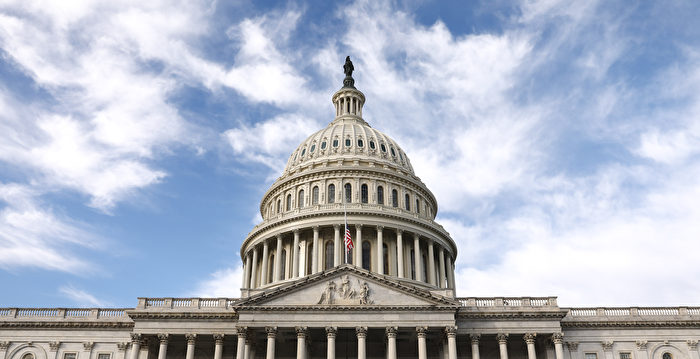[The Epoch Times, December 16, 2022](Reported by English Epoch Times reporter Katabella Roberts/Compiled by Takasugi) Lawmakers in the U.S. Congress voted on Wednesday night (December 14) and passed a short-term law that will last until December 23. The appropriations bill is a step toward avoiding a partial government shutdown.
The resolution, which extended funding for one week, passed the House by a vote of 224 to 201. If the resolution also passes the Senate, it will be sent to President Joe Biden’s desk so he can sign it by midnight Friday, avoiding a government shutdown.
“This continuing resolution simply shifts the date so that we can meet the 2023 deadline for the continuation of the resolution,” Democratic Representative Rosa DeLauro, chair of the House Appropriations Committee, said in a statement. The government can be kept on track while the details of the final spending bill are negotiated.”
De Lauro also added: “I’m encouraged that we were able to reach agreement on a spending ‘framework’ that provides a path forward for enacting an omnibus bill next week. The House and Senate Appropriations committees are working around the clock to get Details of a spending bill backed by the House and Senate are being negotiated.”
Republicans, Democrats spar over spending
The bill would keep the U.S. government at current funding levels until Dec. 23 and give lawmakers an extra week to tease out details of a longer-term, broad-based spending package.
According to information currently available to the outside world, the spending package is expected to be approximately $1.65 trillion in size and will provide funding for the federal government until the end of the fiscal year ending September 30, 2023.
Once lawmakers finalize those details, the final bill still needs to be voted on by Senate lawmakers before being sent to Biden for his signature to become law.
A majority of Republican lawmakers, including House Republican Whip Steve Scalise (R-Louisiana), voted against the short-term funding extension. But nine Republicans still voted in favor with Democrats.
“Capitol Hill” reported that this is because they worry that this is an attempt by Democrats to “buy more time to pass a huge spending bill as soon as possible. At the current negotiating table, the voice of House Republicans is almost nonexistent.” any power.”
Republicans have been pushing a short-term funding bill. The bill will enable the government to run into the new year. At that point, the incoming Republican majority will control the House of Representatives. That would give them more say in how they fund the government in fiscal year 2023, among other things.
Republican lawmakers want to rein in spending that they say is out of control for Democrats.
Rep. Kay Granger, R-Texas, said at a news conference ahead of Wednesday’s vote that House Republicans will “work hard to get a spending deal that cuts wasteful spending and lowers inflation.” , and prioritizing border security and national defense.”
Democrats argue that delaying negotiations until January would have significant fiscal implications and could lead to a government shutdown.
Republican Senator Richard Shelby of Alabama, vice chairman of the Senate Appropriations Committee (Senate Appropriations Committee), told The Epoch Times (The Epoch Times) reporter on December 6 that the bipartisan That’s a difference of about $25 billion in overall spending.
Lawmakers agree on spending bill ‘framework’
In November, Biden called on lawmakers to provide $37.7 billion in additional funding for the Russia-Ukraine war. If approved by Congress, military and other aid to Russia’s neighbor Ukraine would total about $105 billion since the conflict began.
The President also requested an additional $10 billion to fight the COVID-19 outbreak and other infectious diseases.
“During the past two years, the equivalent of every American has lost money because of reckless spending by Democrats,” Jason Smith, a Republican on the House Ways and Means Committee, said at a Dec. 14 news conference. Lost two months of wages. And already facing a fiscal crisis within our own government.”
House and Senate negotiators said on Tuesday (Dec. 13) they had managed to reach agreement on a “framework” for a spending bill that would keep the government funded until September 2023.
Senate Majority Leader Chuck Schumer said the deal to avoid a partial government shutdown was “welcome and important news.”
“Congress now has a road map for funding the government by the end of the 117th Congress,” Schumer said Wednesday morning on the Senate floor. “While we still have a long way to go, the framework is moving in the right direction.” A big step in that direction.”
At present, details about the “framework” of the new spending bill, as well as issues such as the costs involved, are unclear.
Responsible Editor: Ye Ziwei#
